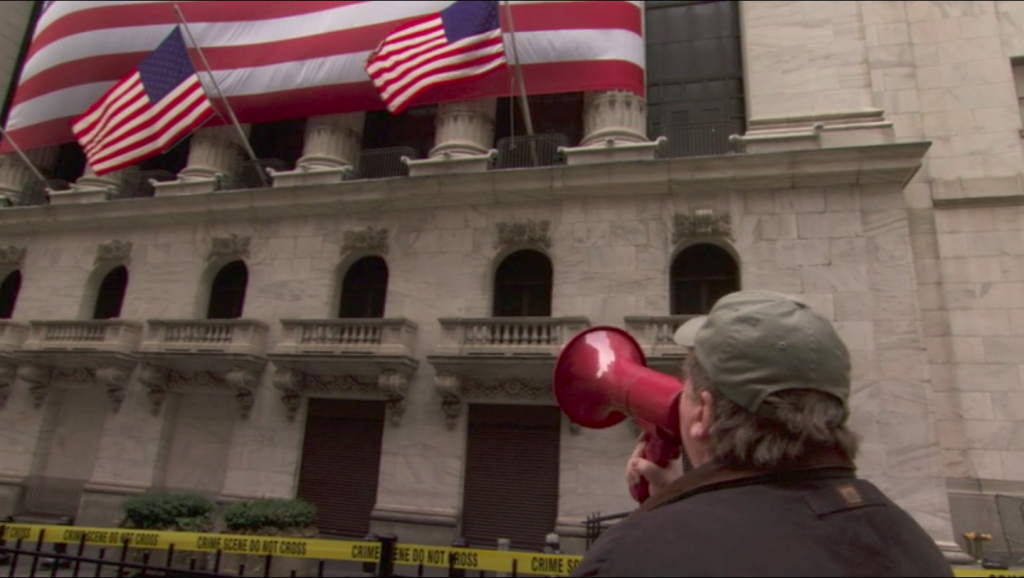
I watched every film about the financial crisis on Netflix. This is what I found out
It’s ten years since the financial crisis. And, to be honest, I have very little understanding of what actually happened.
It’s complicated, it’s technical, it’s a lot about banks. But to filmmakers, the financial crash kind of has it all: Greed, desire, tragedy, heartache.
So I set myself a task – in what has got to be the most depressing movie marathon ever, I’d watch all the films about the financial crisis on UK Netflix in the space of 48 hours to see if it clears anything up.
The Big Short
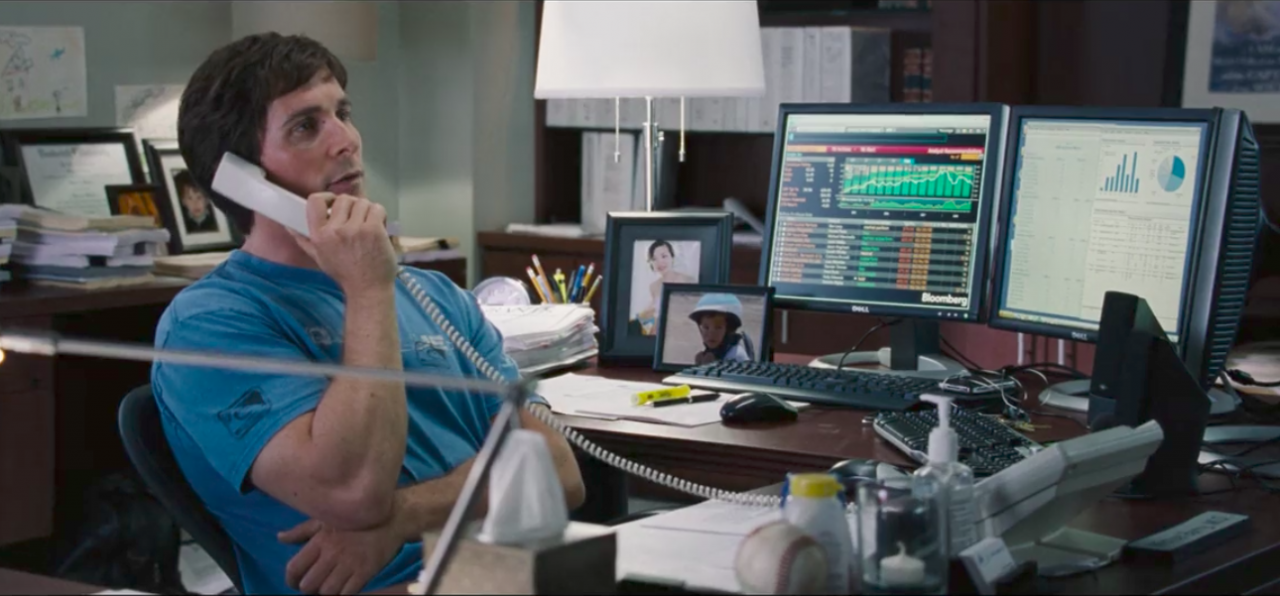
Netflix description: While the rest of the country took a historic hit, they worked out a scheme to wind up way ahead.
Ok, so here we go. I’ve read some reviews and The Big Short seems like a good place to start. There are lots of phrases like ‘critically acclaimed’ and ‘factually accurate’ going around so I’m feeling pretty positive. I might actually learn something. It might be a pleasant experience.
Ten minutes in and I don’t have a clue what’s going on.
The Big Short is the story of a few Wall Street bros who realised early that the whole US mortgage market (and the whole US economy) was about to collapse. So they bet against it. How? Don’t ask me, but I think that’s the point.
The film makes a good attempt to explain the complicated stuff – it wheels on Margot Robbie, Alain Bourdain, Richard Thaler (the ‘father of ) and Selena Gomez to explain WTAF some of the more confusing bits mean. Which was helpful, not because I actually understood any of it, but because it made it kind-of-still-a-bit-entertaining. It did get old pretty quick though and at one point I suddenly remembered I had some urgent washing to fold, so did that.
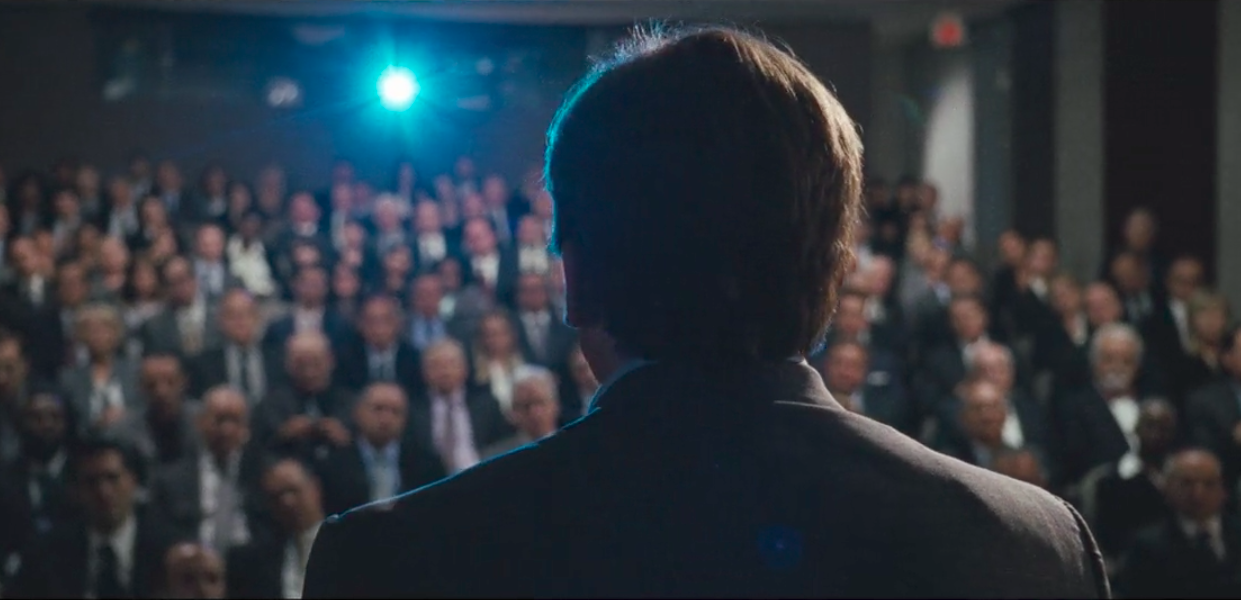
The film makes a point of how needlessly complicated this stuff is: that people who work in Wall Street want you to be confused so you think it’s something only they can do. The whole system is so complicated, and (to use their words) so fucked up, Ryan Gosling explains the US mortgage bonds market (not sure either) with some customised Jenga blocks.
It’s pretty clear what the filmmakers think of Wall Street bankers in the mid-noughties. This is a film without any heroes.
And maybe this shows how little I understand the mentality of a Wall Street banker but I couldn’t stop wondering why no one stopped it. No one warned anyone that the entire economy was going to collapse, that people would be homeless, and thousands would lose their jobs. Instead they made money off it. And hey, let’s give them some credit – some of them felt a bit bad about it. They looked longingly off into the distance while they watched montages of Lehman Brothers closing, those big screens in Times Square going nuts, and men in suits crying and holding boxes. They just got to count their cash while they did it.
The Queen of Versailles
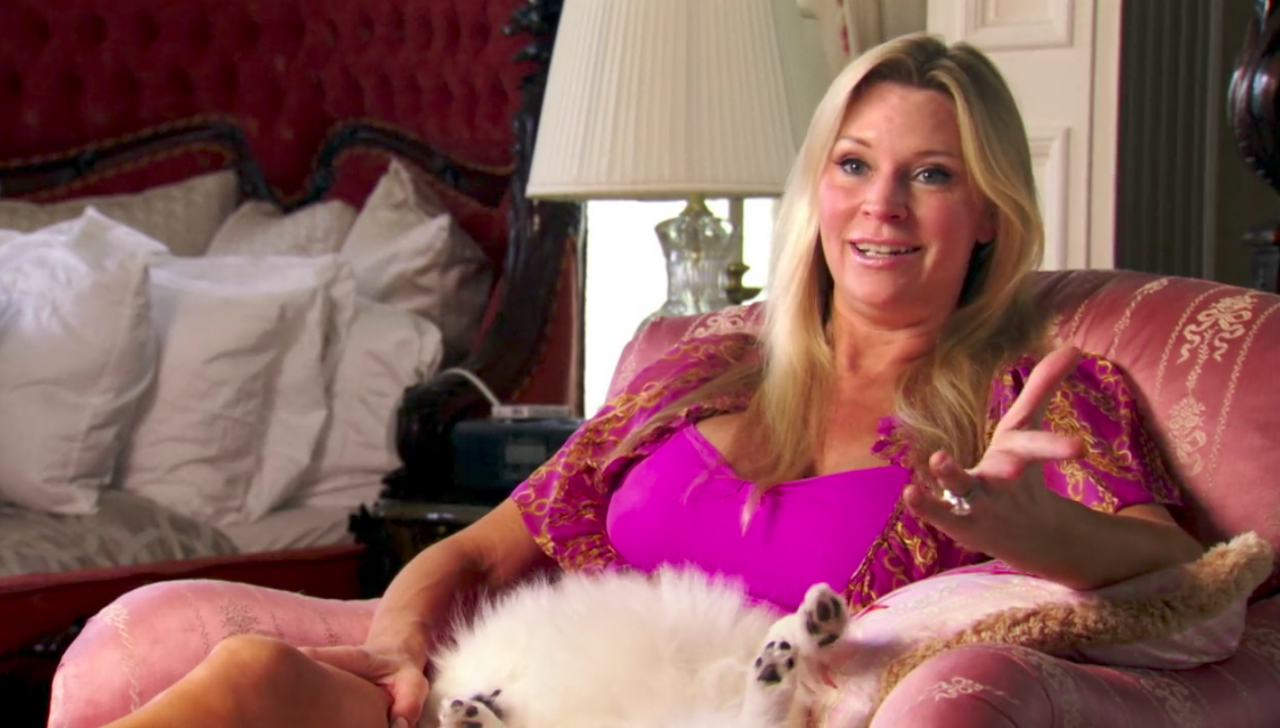
Netflix description: A wealthy American family aims to build the nation’s largest, gaudiest home, only to be hit by the 2008 financial crisis before it can be completed.
Next on the list is The Queen of Versailles, a reality TV show about very, very rich people. There are a lot of documentaries about very, very rich people on Netflix, and on the surface this doesn’t look much different from a Real Housewives spin off. It is, I’m a bit embarrassed to say, much more my area.
The Queen of Versailles is a story about David and Jackie Siegel. She’s thirty years younger than he is, an ex-IBM engineer, turned model, turned beauty queen. David Siegel made billions off Time Shares – he buys land, builds properties and sells access to them as holiday homes for families.
The film is supposed to be about David and Jackie’s plan to build the biggest house in America. They’re upsizing from their 17-bathroom mansion to a 30-bathroom palace, modelled on the actual palace of Versaille. There’s going to be a bowling alley, a health spa, a sushi bar. Ten kitchens.
It’s rich people porn, and we’re encouraged to sneer – but it’s also a film about the American dream. Jackie and David talk a lot about their more modest starts in life – Jackie only had one bathroom growing up, which is why she thinks she needs 30. And if the American dream really is this idea that the ultimate achievement in life is to make money and build a big house then that’s exactly what they’re achieving.
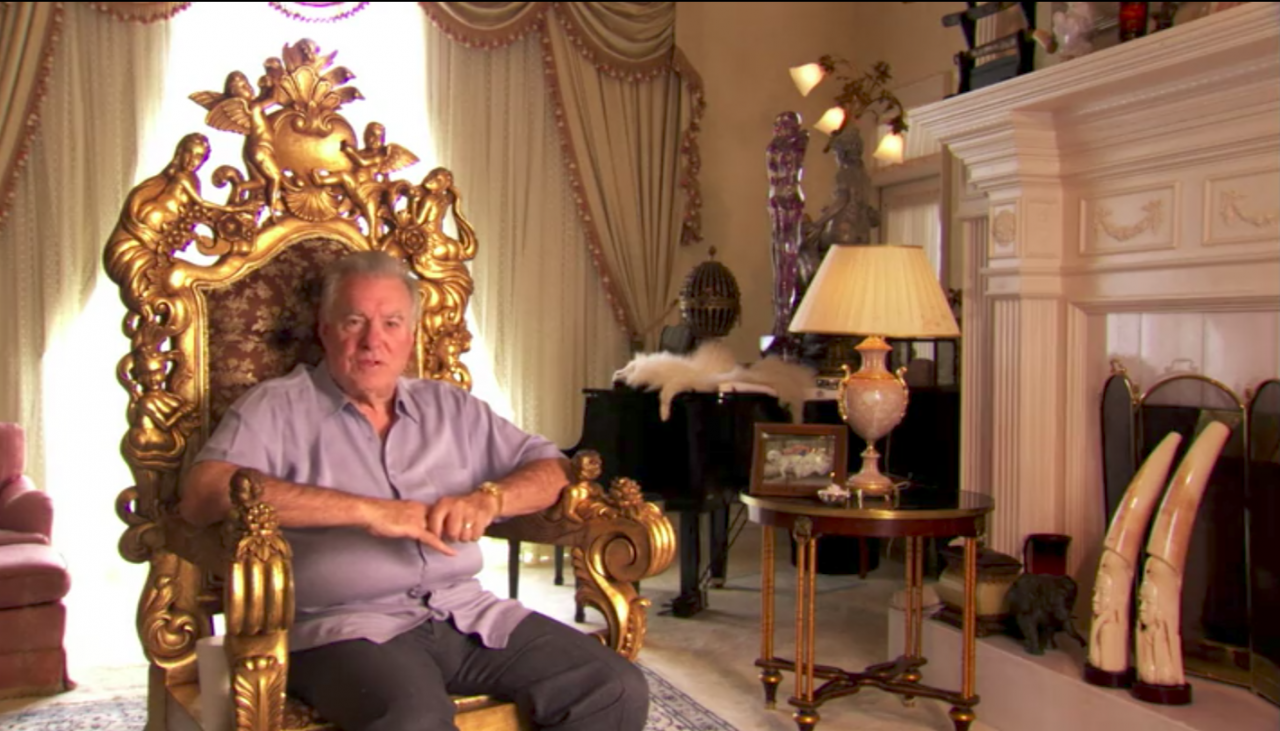
Until BOOM! For the second time this evening, I’m watching the same stock shots of Lehman Brothers closing, those big screens in Times Square going nuts, men in suits crying and holding boxes.
Siegel funds his developments through getting out lots of mortgages. As we’ve already learned from The Big Short, mortgages in the mid-2000’s suddenly went from seeming like a really safe bet, to not being such a safe bet.
Suddenly, it’s become a film about a family trying to live within their means. Everything’s for sale, because so much of what they owned and bought was based on what money they might have in the future, rather than the money they have now.
It’s a film about how pre-2008 people thought wealth was invincible, that money was some intangible thing that you could keep borrowing on and betting on. The Siegels would never have to worry, their kids would never have to go to college, get a job, cook for themselves. Until suddenly they do.
And weirdly, what starts out as rich people porn, as pointing and laughing at their giant stuffed stiletto chairs and their 17 marble baths, suddenly becomes a film about humanity (bear with me, I’m getting tired). Yes, they’re rich and they’re gaudy but as the cracks start to appear in their ‘perfect’ lives, you see how vulnerable they are. Just like the rest of us.
Waffle Street
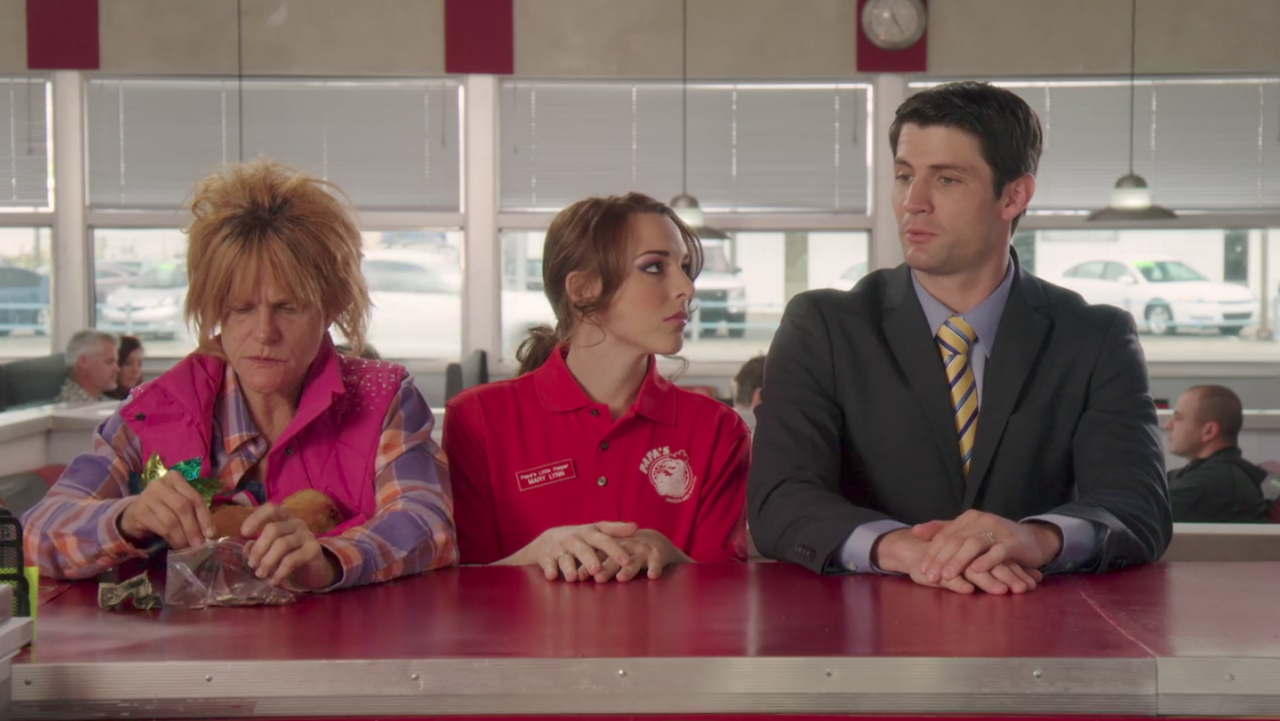
Netflix description: Shaken by his role in the 2008 financial crisis and desperate for a job, an ex-hedge fund manager rejoins the workforce as a server at a diner.
Let’s just get one thing straight: this is an awful film. I’d never heard of it, I just searched financial crisis in Netflix and it came up. It’s got Nathan from One Tree Hill in it. What did I learn? I learned that you can make a straight-to-TV snore-fest out of literally any subject.
The sad thing is this is actually quite a good story about something that really did happen to a guy named Jimmy Adams. Adams did something dodgy with bonds and mortgages during the financial crisis and took the fall for his company. It could be the same thing they did in <i>The Big Short</i>? They were using a lot of the same words, but as I’ve mentioned, I’m a bit blurry. As Adams tells himself repeatedly at the start of the film (I think so we know he’s Actually A Good Guy) what he’s doing is legal, so can’t be unethical (which is also how we know that whatever it was, it was definitely unethical).
This guy is a maths whizz who loves his job, then loses it and is unlikely ever to work in finance again. So he goes in search of an all-American honest job (that idea of an honest day’s work comes up a lot in this film). He tries manufacturing – but he doesn’t know how to fix a car, or speak Spanish; he goes to a carpet fitter, but he doesn’t know how to fit carpets; until, finally, he ends up driving past a waffle house which needs staff. This annoyed me – service was an obvious choice, all over the Western world, the foodservice industry was just about the only thing that went on unabated throughout the financial crisis – but anyway, what do I know?
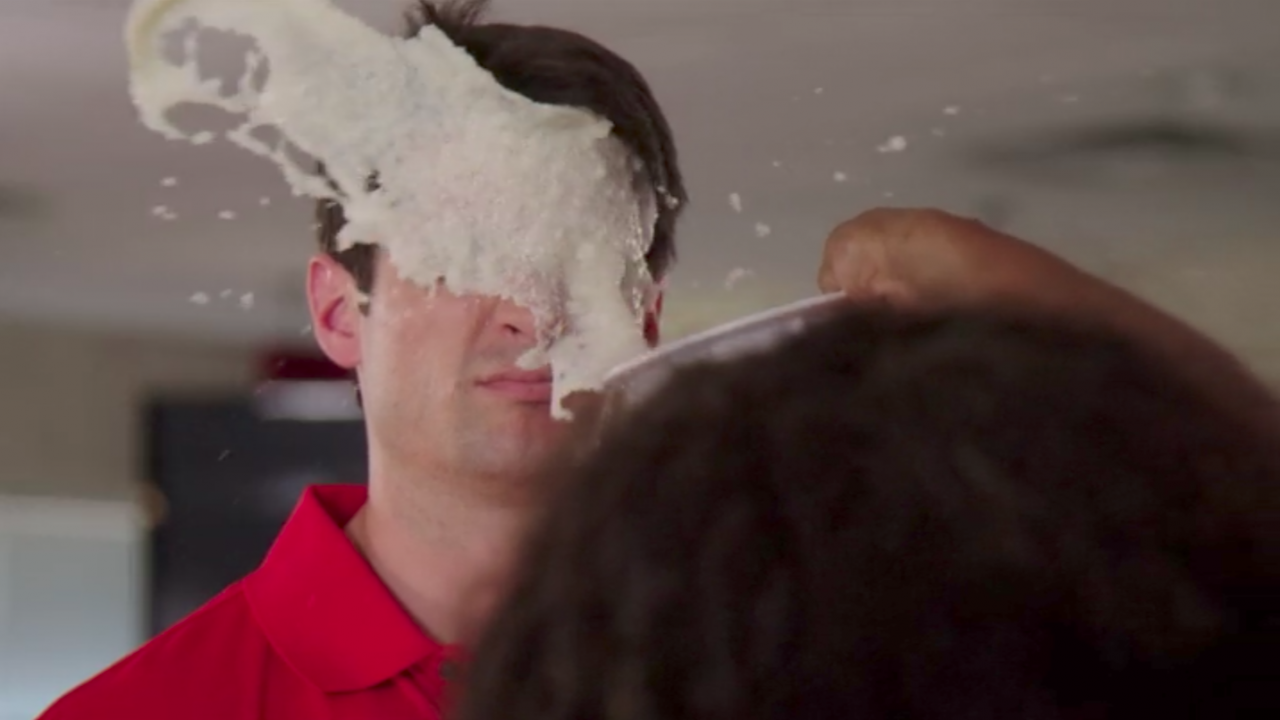
Adams is bad at his job (great at working the register because he worked in finance, remember?) but he still loves doing an ‘honest day’s work’.
He goes home to his beautiful wife and his beautiful house and they work out together that including clothing costs, he’s actually more than a hundred dollars down on his first day, isn’t that funny? He doesn’t join a union, or even stop to wonder how his colleagues (a friendly cast of local down-and-outs, including I kid you not, a smoking pregnant teen) actually live on that money.
Instead he decides he loves it so much he wants to buy the restaurant. Most of the rest of the film is about him trying to do that. He sells his house and his car. He works all the shifts he possibly can until eventually his dad just gives him the money. And then he decides he doesn’t love it that much, and so starts a finance company (spoiler, sorry).
What did I learn? Don’t worry, work hard enough and your dad will buy you a restaurant.
Capitalism: A Love Story
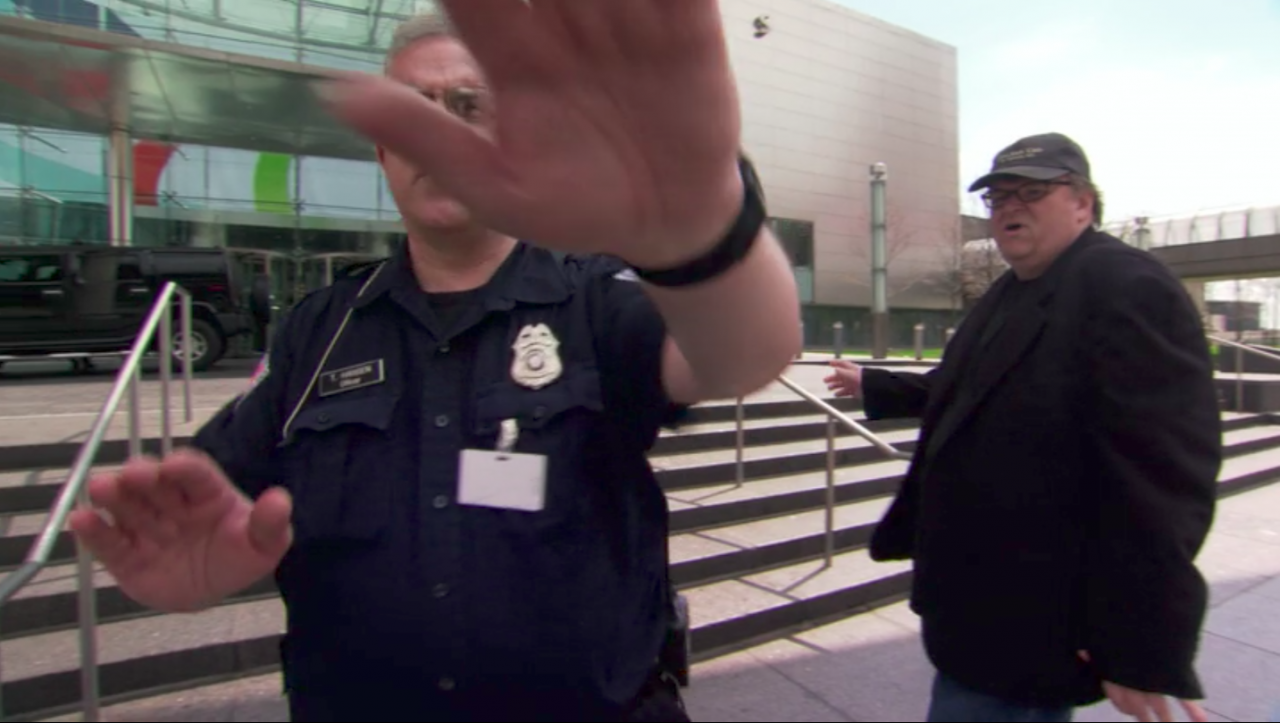
Netflix description: The American dream’s been derailed: forget reform, when it comes to capitalism he’s calling for a revolution.
It’s the home straight, thank god. I don’t think I can take any more films about bankers. Which is lucky, because documentary filmmaker Michael Moore’s take on the financial crisis starts with poverty.
One of the things that struck me in the past few days is how little these films have touched on how much poor people were affected by the financial crisis. In The Big Short there was a bit of hand-wringing about ‘ordinary Americans’ and there was Waffle Street’s fetishisation of poverty wages AKA ‘an honest day’s work’ – Jackie Siegel even held a discount sale for the thousands of employees her husband had to lay off, but we never actually heard any of their stories.
Michael Moore sets out to redress that balance. Now, this film is not directly about the financial crisis. It’s about capitalism as a system, and it’s worth noting here that Michael Moore doesn’t like capitalism that much. This is not a balanced account.
A lot of the film is arguing that if businesses and governments are motivated by profit, then they don’t care enough about people. He finds examples to prove that. He meets kids who were put into actual prison without doing anything in the least bit criminal, because the private company which owned that prison had paid off a judge so they could fill cells. He meets the families of people who’ve died, and whose employers (including Wal-Mart) have taken out secret life insurance policies that have paid out thousands of dollars to the company.
Americans grow up learning capitalism is good, he argues. That capitalism means democracy. But actually, it just means rich people get richer, at the expense of the poor.
He argues that for decades people had been discouraged from joining unions, from arguing for a fair wage, but had been encouraged to take out loans and credit cards. Which, he says, is great news for the stock market and America’s CEOs...
And then suddenly, BOOM! Here’s our favorite montage: stock shots of Lehman Brothers closing, those big screens in Times Square going nuts, men in suits crying and holding boxes.
Michael Moore really goes in on Wall Street. He speaks a lot about the government bailout, orchestrated, he says, by a huge group of ex-Goldman bankers who dominated the US Treasury department.
The film ends with a very long clip of Michael Moore unrolling police tape outside Goldman Sachs. I like to think he’s still there.
Boom Bust Boom
Where Michael Moore points the finger at the financial sector (and the entire capitalist system) Boom Bust Boom, another documentary, this time from Monty Python's Terry Jones, takes aim at economics and economists.
It uses puppets, animation and in true Monty Python style – songs. Now a little disclaimer here: Boom Bust Boom was made in partnership with Cardano Insights, who we've also worked with, so obviously we're going to be kind of on board with what the film is trying to do – basically encourage people to question why we think about economics in the way we do, and whether certain things economists have always taken for granted should actually not be taken for granted.
Where The Big Short had Margot Robbie explaining sub-prime mortgages in a bubble bath, Boom Bust Boom wheels out John Cusack (this time not in a bubble bath) and I didn't understand any more of it. The film's main argument is that economists, essentially, should have been able to predict the financial crisis.
Their failure to apply economics to the real world – and to think in a different way than they always have – stopped them from doing that. The way we can stop this from all happening again is by changing the way we think about it all in the first place.



